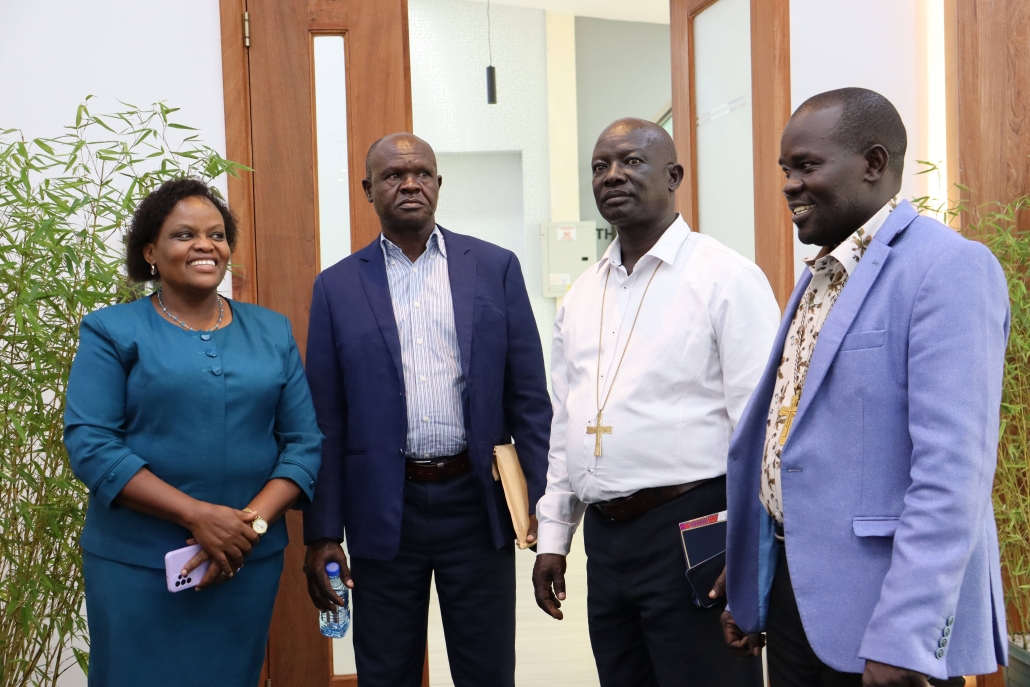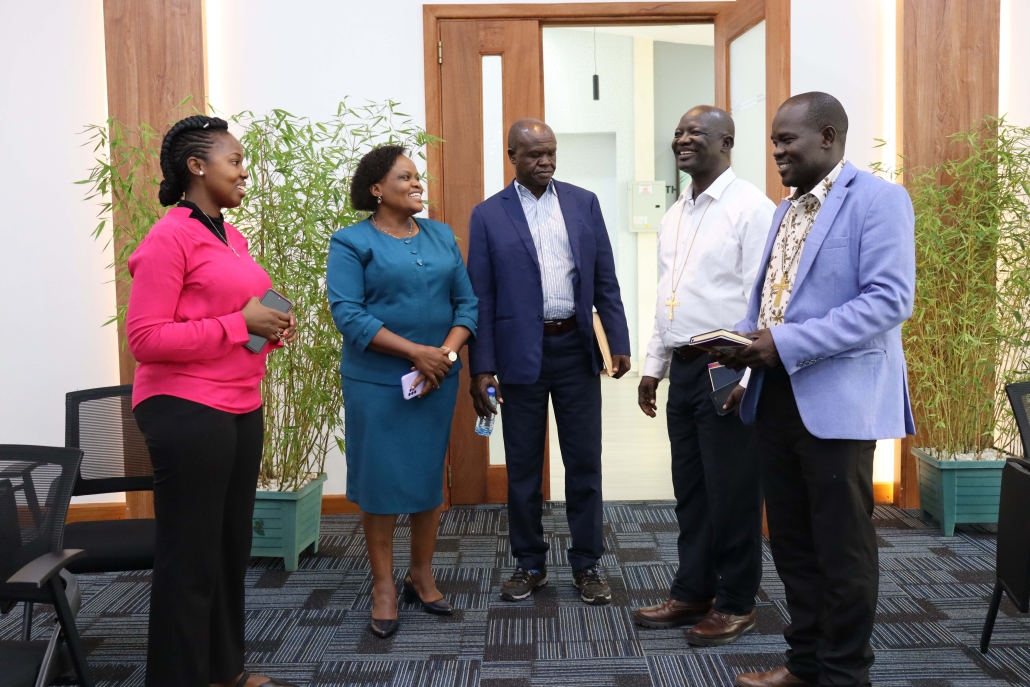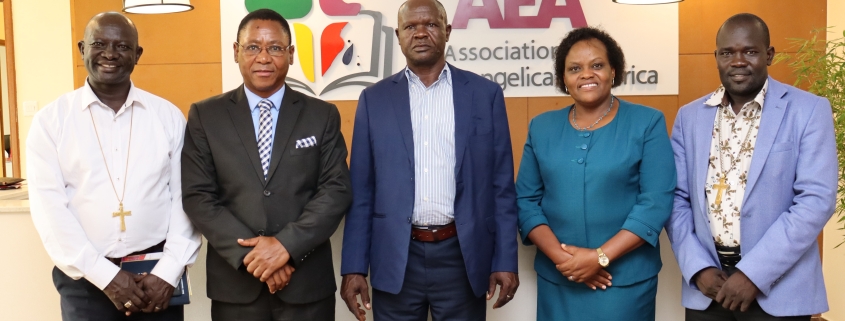A Step Toward Localized Theological Education Across Africa
The Secretary General of the Association of Evangelicals in Africa (AEA), Dr. Master O. Matlhaope, recently held a significant meeting with Bishop Yassir Kuti, Bishop Elsir Hassan, and Rev. Barnabas who are Church leaders from the Nubian region. The SG was accompanied by Dr. Florence Mungathia, Director – Institutional Development & Brand Management at Africa International University (AIU), in the meeting took place at the AEA headquarters in Nairobi, Kenya.
The religious leaders expressed their relief and gratitude for the relative peace that has been prevailing in the region. After decades of civil strife, the Nuba Mountains have seen a reduction in active conflict, allowing communities to begin rebuilding their lives and institutions. The delegation extended a warm invitation to the Secretary General to visit the region, signifying a deepening of regional partnerships in peacebuilding and development.
One of the most pressing concerns raised during the meeting was the dire need for formal theological education in the region. According to the church leaders, their region has lacked an institutionalized theological training centre for the past 38 years. Aspiring clergy and church leaders have been forced to seek education abroad, a path that is financially and logistically challenging for many.
To address this, the delegation made a formal request for the establishment of a branch of Africa International University (AIU) within the region. The Secretary General, who also serves as the Chancellor of AIU, acknowledged the gravity of the request and expressed a willingness to explore collaborative solutions to make theological education more accessible in the region


The absence of formal theological education has broader social implications. Without locally trained clergy, faith-based initiatives, social programs, and moral guidance are limited, affecting the spiritual and communal development of the region. The leaders emphasized that establishing an institution for theological education would not only enrich the church but also contribute to the broader societal healing and reconstruction process.
The meeting concluded on a hopeful note, with both the Secretary General and the church leaders expressing optimism about potential partnerships. If realized, this initiative would mark a significant step forward in ensuring sustainable theological education, leadership development, and long-term stability in the region.
The progress in the Nubian region serves as a testament to the resilience of its people and the crucial role of faith-based institutions in post-conflict recovery. As discussions move forward, the hope remains that this initiative will serve as a beacon of transformation for the entire region.



